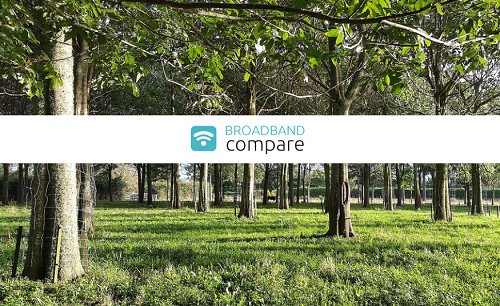
The internet is pretty much an absolute necessity for households across New Zealand and in harder to reach rural areas, that can’t be fibre broadband enabled, the wireless broadband services that are supplied by the dozens of different rural broadband providers are a lifeline to the outside world for rural homes… but that wonderful rural view may be changing with the High Court in Auckland ruling that property owners can be forced to trim or remove trees that are blocking their neighbours' broadband reception.
In the potentially precedent-setting ruling, Justice Sally Fitzgerald made the judgement after a family living north of Warkworth complained that a line of trees planted near the boundary of their property was interfering with, not only their views, but also their all-important wireless broadband reception.
The Vickerys family had a rural broadband connection that relied on a fixed-wireless broadband service provided by telecommunications company Compass. This was transmitted from a base station 30 kilometres away and although the court accepted expert evidence that their neighbour's trees were NOT interfering with the broadband signal, Justice Fitzgerald ruled that "undue interference with a wifi signal" caused by trees could constitute an "undue interference with the reasonable use and enjoyment" of someone's land.
Fixed-wireless broadband is a very common connection type in rural areas and there are a number of different providers. It is most commonly used for rural properties that are outside the reach of either fibre or good quality copper broadband.
Compass chief executive Karim Hussone clarified that the Vickerys' wireless broadband service was not "wifi", as it is commonly known and how it had been described by the court. The connection that the family were using was in fact a licensed radio spectrum.
The High Court judgment did not make it clear whether trees might also have to be trimmed or removed if they were interfering with someone's 3G or 4G mobile broadband service which are being promoted heavily by Spark and Vodafone, as a practical broadband solution for townies who don’t need much of a data cap.
So where does that leave the trees in the fight against the relentless march of technology? Well here at NZ Compare we sincerely hope they’ll be ‘Oak’ – kay… sorry!
If you are looking for a new rural broadband plan you can compare rural broadband providers here.